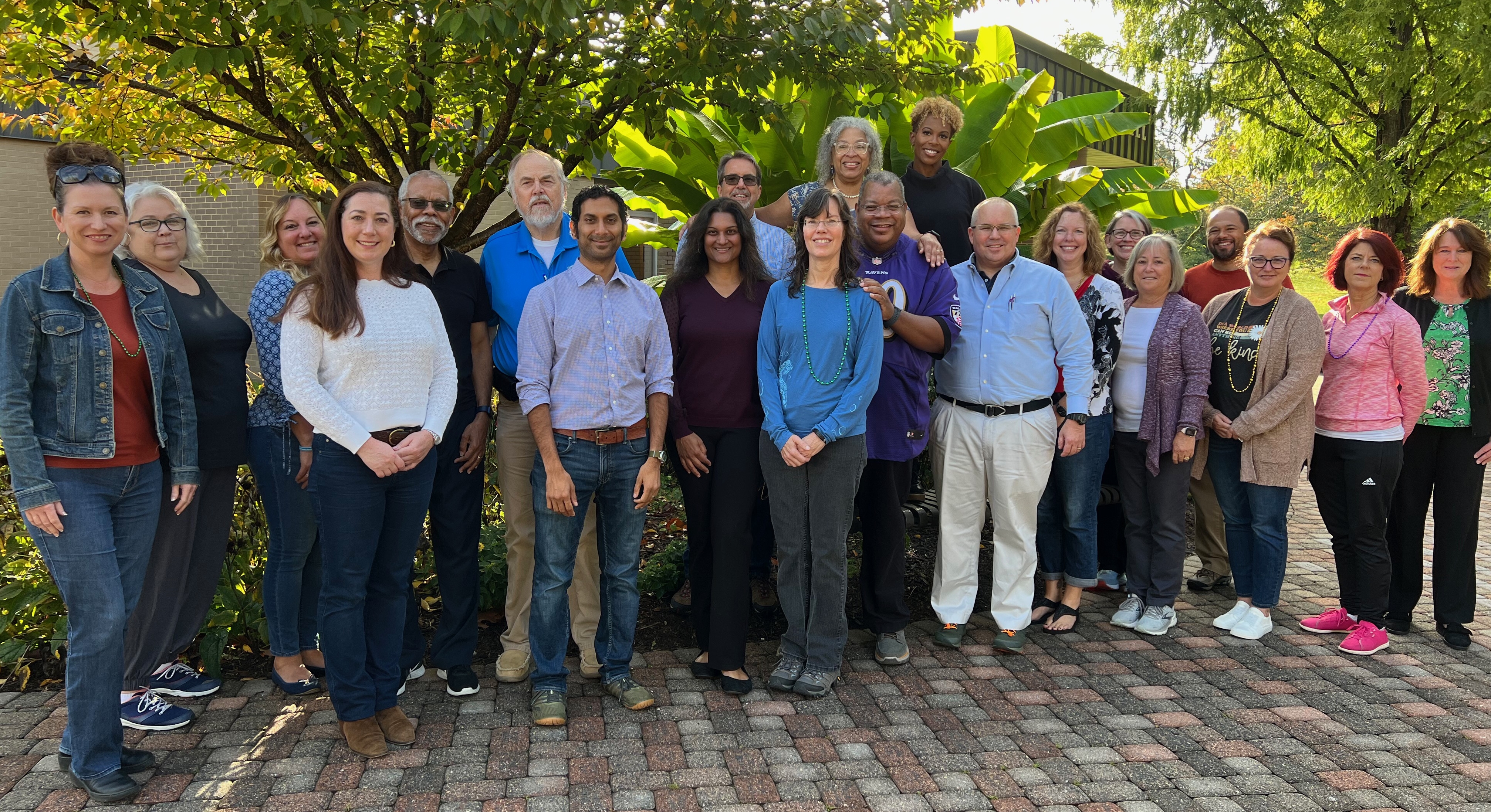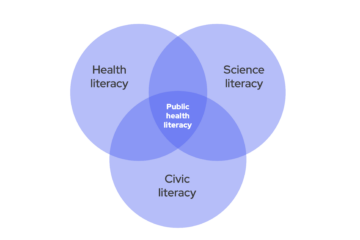
Maryland Health Officers*, as of Fall 2022 (*not all Health Officers present).
The COVID-19 pandemic wreaked havoc on the U.S. public health infrastructure. Decades of neglect and disinvestment in its workforce hampered its ability to respond to a long-term, widespread public health emergency. Health department staff across the country were thrust into the public eye with little support, experiencing pushback to pandemic mitigation measures and other challenges that resulted in mental health impacts, fatigue and burnout. Over half of the nation’s nearly 3,600 local health departments reported at least one incident of harassment. The ensuing exodus from the field has continued to deplete the necessary public health workforce, burdening those who remain.
Where we work in Maryland, our local health officials received threats on social media, at community events like testing and vaccination sites or public meetings, at the workplace, and at their homes. Many took specific precautions as a result, such as not going anywhere alone, contacting law enforcement, or moving meeting locations. They – and we – could not understand why they were being attacked for doing their jobs, while they were working overtime without seeing their families and missing important life events.
Given these working conditions and ongoing public health threats, there is an urgent need to prioritize public health worker protections, mental health, and well-being. The CDC’s National Institute for Occupational Safety and Health’s (NIOSH) Total Worker Health® (TWH) model aims to improve the well-being of the workforce by protecting their safety and enhancing their health and productivity, benefiting workers, employers, and the communities they serve.
Mental Health Crisis in the Public Health Workforce
Results from the 2021 Public Health Workforce Interests and Needs Survey (PH WINS), illuminated a growing crisis in the U.S. public health workforce:
- 21.5% of PH WINS respondents rated their mental and emotional health as poor or fair.
- 55.4% of PH WINS respondents reported experiencing at least one symptom of post-traumatic stress disorder (PTSD), and 25% reported experiencing 3+ symptoms, which indicates probable PTSD .
- 15% of respondents agreed or strongly agreed that they have felt harassed or bullied due to their job.
Burnout and an Exodus
Survey responses indicated high levels of burnout and an increasing desire to leave their positions. In 2021, 26.9% of respondents said they were considering leaving their organization within one year (compared to 24.4%. in 2017.). Of those considering leaving, 41% reported workload and burnout as their main reasons for leaving, compared to 23.1% in 2017.
As one Maryland local Health Officer shared, “When I look at [my] staff…it’s like walking around with a bunch of ghosts…many staff look shell shocked…sad, and many say if they weren’t so close to retirement they wouldn’t come back…I do love my job…but there are days where I’m like – why am I doing this to myself.”
During the peak COVID-19 response of 2020-2021, 14 out of 24 Maryland local health officers left their job, and in a few health departments, the health officer turned over more than once. While some of the departures were planned retirements, others were due to direct threats and harassment and for lack of support. As one Maryland local health officer explained when leaving, “The exhaustive work of the past 19 months has taken a significant toll on my mental, emotional, and physical health. For the sake of my own health and the health of my family, I need to step away.” PH WINS data revealed similar findings: among respondents indicating that they are considering leaving in the next year, 39% said the COVID-19 pandemic has made them more likely to leave. To ensure a stable, robust, and responsive public health system going forward, we need new workforce approaches that prioritize worker safety, health and well-being; and that communicate the value of public health work.
A More Holistic View of Worker Well-Being
The NIOSH Total Worker Health® (TWH) model offers a framework that can help the nation shift the public health workforce paradigm to better support, protect, and value the workforce. TWH focuses on improving worker well-being in five domains: Workplace physical environment and safety climate; Workplace policies and culture; Health status; Work evaluation and experience; and Home, community, and society. Across the five domains, TWH offers a holistic view of “worker well-being” within the context of both work and non-work settings and measures.
TWH enables public health agencies to prioritize the health, safety, and value of their own workers as a critical part of their communities. State and local health departments know they need strategies to support their workers. Some initial efforts, such as ASTHO’s Hope, Equity, Resilience, and Opportunity (PH-HERO) Initiative, provide resources to help protect, support, connect, and grow the well-being and retention of their workforce. In Maryland, local Health Officers are sharing how they have made meaningful change to worker conditions and work culture within the constraints of the Maryland State personnel system.
However, such initiatives often do not include funding, and agencies need additional support and resources to implement them within the context of their agency and governance structures. They also cannot be one-off actions in immediate response to pandemic impacts. Such efforts need to be embedded into ongoing initiatives and systems as a sustained component of the public health infrastructure. When workers know they are valued and supported, they are more effective at their jobs and less likely to leave.
Moving Forward
As the CDC has invested $3 billion over the next five years to recruit, retain, support, and train the public health workforce, now is the time to prioritize worker safety, mental health, and well-being as essential components of the public health infrastructure. Health departments need assistance and support in ensuring a well-supported, trained, stable, and robust workforce. The health and safety of the nation depends on it.
All authors are affiliated with the Department of Health Policy and Management, Johns Hopkins Bloomberg School of Public Health, Baltimore, MD. B. Resnick and P. Mui are full-time faculty members and R. Maiorana is Executive Director of the Maryland Association of County Health Officials (MACHO).




